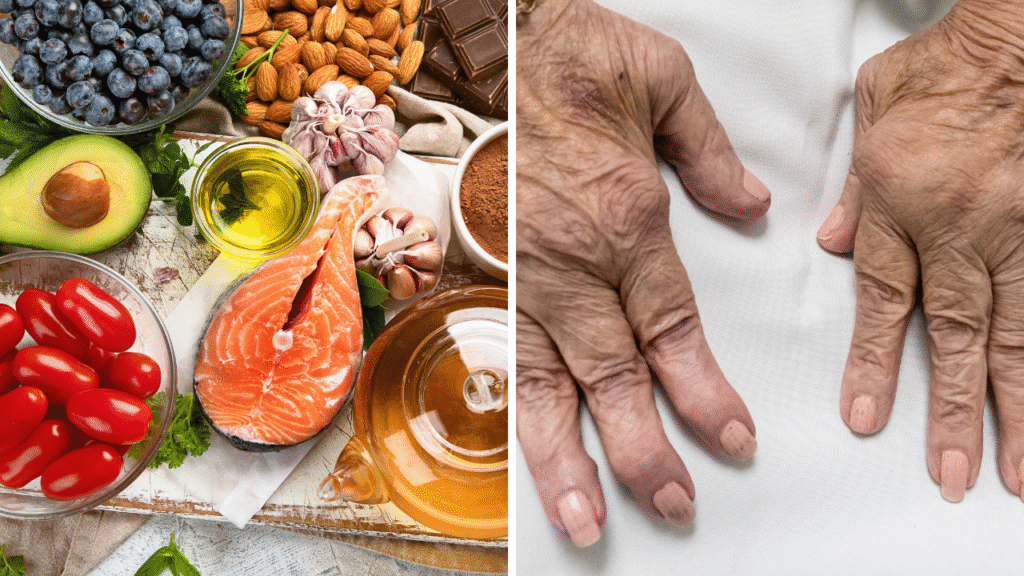
With numerous potential health advantages, green tea is hailed as one of the world’s healthiest beverages. It is the second most popular beverage in the world, right behind water, according to a report from the International Institute of Sustainable Development. According to studies, green tea may benefit skin health, aid in weight loss, and lower the risk of cardiovascular disease. In addition, the least processed type of green tea is produced from unoxidized leaves and has the highest concentration of polyphenols and antioxidants.
Here are 13 Fantastic Green Tea Health Benefits
1. Nutrition Information
Green tea leaves numerous compounds, nutrients, vitamins, and minerals that are greatly diluted in a single cup of tea. Eight fluid ounces of green tea contain calories, protein, fat, carbohydrates, fiber, and sugar, among other nutrients. Although there aren’t many vitamins and minerals in steeped green tea, some can be found in appreciable amounts. In addition, green tea contains polyphenols, an antioxidant, which is also relatively high in caffeine—about one-fourth the amount found in coffee.
2. Heart Health
A significant Japanese study that followed 40,000 adult participants for 11 years discovered a link between daily green tea consumption and a lower risk of cardiovascular disease death. The study focused on the relationship between cardiovascular diseases and green tea’s polyphenols (antioxidants). Five cups were the bare minimum daily intake needed to reap this benefit.
3. It may improve brain function.
Green tea is a stimulant that can enhance several mental processes, such as mood, alertness, reaction time, and memory. Additionally, it has L-theanine, an amino acid that can penetrate the blood-brain barrier and stimulate the brain’s GABA, dopamine, and alpha waves. According to studies, caffeine and L-theanine can have synergistic effects, so taking the two together can significantly enhance brain function. For example, a 2016 meta-analysis of observational studies found a link between daily tea consumption and a lower risk of cognitive impairment and mild cognitive impairment. In addition, research has shown that green tea can improve working memory and other cognitive function.
4. Enhances the burning of fat
Due to its ability to increase fat-burning and speed up metabolism, green tea is a well-known fat-burning supplement. In one study, green tea extract raised fat oxidation by 17% and calorie burn by 4%. Additionally, caffeine may improve physical performance. According to studies, green tea can aid in weight loss, especially around the midsection. The green tea group significantly decreased body weight, waist circumference, and body fat percentage throughout a 12-week randomized controlled trial. Additional research is required to confirm this effect. In the short term, green tea can increase metabolic rate, which may aid in the reduction of body fat, especially in the abdominal area. Learn more
5. Inflammatory skin conditions
Anti-inflammatory properties are found in green tea. A summary of clinical research on people Epigallocatechin-3-gallate (EGCG), a key component of green tea, has been found to have demonstrable anti-inflammatory effects in a review of human clinical studies and both cellular and animal experiments. This was confirmed by a 2019 analysis of tea extract used in cosmetics. The scientists concluded that topical treatments, including tea extracts, encouraged anti-inflammatory reactions. They also discovered that the affected area’s skin microcirculation had improved.
6. Treatments for genital warts
Applying green tea extract to the skin has been approved by the US Food and Drug Administration to treat genital wart outbreaks. However, only by prescription, this ointment is thought to be effective in treating between 24% and 60% of patients. In addition, sinecatechins (marketed under the name Veregen), a topical ointment that contains green tea leaf extract and is used to treat genital warts, has received FDA approval.
7. It has Antioxidant properties
According to research, green tea compounds have been associated with lower cancer risk, including breast, prostate, colon, and colorectal cancer. Avoid putting milk in your tea to get the most health advantages. Green tea consumption has not been consistently linked to a lower risk of cancer in humans, but topical application of green tea polyphenol extracts may help shield the skin from UVB rays. Studies on cells in test tubes and animals have indicated some beneficial effects on the following cancer types. However, numerous human studies have produced mixed results, and there is only weak evidence that drinking green tea lowers the risk of cancer in general.
8. It may protect the brain from aging.
It may lower the risk of dementia because it has many properties that protect the brain. In 2011, a test tube cell study examined how colon-available green tea extract (CAGTE), a part of green tea, affected an essential protein in Alzheimer’s disease. In the experiments, differentiated PC12 cells were used to represent neuron cells. CAGTE was used to describe green tea phytochemicals that might be available after digestion in the upper GI tract. Scientists found that high concentrations of CAGTE could protect cells from beta-amyloid peptides and free radicals, which may help cause Alzheimer’s disease. But the amount used was much more than what the human body can handle.
9. It might minimize lousy breath.
Green tea catechins have advantages for oral health, including limiting bacterial growth and lowering the risk of infections. In addition, studies have shown that the catechins in tea inhibit Streptococcus mutants, a typical oral bacterium. However, no proof consuming green tea has a similar impact.
10. It might aid in preventing type 2 diabetes.
Studies show that green tea may make the body more sensitive to insulin and lower blood sugar. One study of Japanese people found that those who drank the most green tea were 42% less likely to get type 2 diabetes. A review of 7 studies with 286,701 people found that people who drank tea had an 18% lower risk of diabetes. Studies have found different things about the link between green tea and diabetes. One study of 17 randomized control trials found a link between drinking green tea and having lower blood sugar and insulin levels when you wake up. A 2017 review of studies on dietary polyphenols found that people who ate as they did in the Mediterranean had a lower risk of type 2 diabetes when they drank green tea.
11. It might aid in preventing heart disease.
Studies show that green tea may lower total and LDL (bad) cholesterol levels, two of the most significant risk factors for heart disease. It also gives the blood more antioxidants, protecting LDL particles from oxidizing. As a result, green tea drinkers can cut their chance of dying from heart disease by up to 31%.
12. It may help you live longer.
Over 11 years, researchers examined 40,530 Japanese adults. They discovered that people who consumed the most green tea had a significantly lower risk of passing away during the research period. For example, death from all causes was 23% lower in women than men, while deaths from heart disease were 31%, and strokes were 42% lower in women than men. Furthermore, according to a second study involving 14,001 elderly Japanese people, those who drank the most green tea were 76% less likely to pass away throughout the study’s six-year duration. This implies that green tea drinkers may live longer than non-drinkers.
13. Drinking green tea could help you be more alert.
The NCCIH lists mental alertness as one of the most well-liked benefits of green tea. The caffeine in green tea is responsible for this immediate effect. Caffeine stimulates the central nervous system, but excessive consumption can have adverse effects. However, green tea’s low caffeine content wakes you up without giving you the jitters and anxiety that higher-caffeine products like coffee can.
How to Prepare and Use Green Tea
1 Prepare green tea with green tea leaves.
To prepare tea with green tea leaves, you will need the following:
- Green tea leaves—one teaspoon for 1 cup of green tea. You can use green tea pearls.
- A clean tea strainer
- A stainless steel pan or glass teapot
- A glass of water
METHOD
- One cup of green tea leaves equals one teaspoon.
- So take the amount corresponding to the number of cups to be made.
- Place the tea leaves in a sieve or strainer.
- In a pot, heat the water to 80–85 °C. Set the strainer or sieve over the cup.
- Fill the cup halfway with hot water.
- Allow the green tea to steep for about 2–3 minutes.
- To begin, take a spoonful every 30-45 seconds to ensure the tea is exactly the right flavor for you.
- Set aside the sieve.
- At this point, you can sweeten your green tea with a spoonful of honey or cinnamon.
- However, before adding honey to the tea, let it cool slightly.
- Otherwise, honey’s benefits may be lost. Relax with a hot cup of green tea.
2 Prepare green tea with GreenTea bags.
To prepare green tea with tea bags, you will need the following:
- A stainless steel pot
- A cup of hot water
- A high-quality green tea bag
- A clay or stainless steel cup
- A lid to cover the cup
METHOD:
- Put a tea bag into the cup.
- Boil the water and pour it into the cup.
- Cover the cup for 4 minutes.
- Remove the lid and the tea bag, and stir the tea.
- The tea is ready!
3 Prepare tea with Green tea powder.
To prepare the tea with powder, you will need the following:
- 1.5 teaspoons of tea powder, preferably matcha green tea.
- A glass of water
- Stainless steel or glass teapot
- One teaspoon of honey
- A strainer
METHOD
- Bring the water to a temperature of 80–85 degrees Celsius.
- If it boils, allow it to cool for 30 to 45 seconds.
- To the hot water, add the green tea powder.
- The total steeping time is about 2-3 minutes, but take a sip after 1.5 minutes to determine the appropriate strength and flavor.
- After 3 minutes, the color flavor will turn brown.
- Pour the tea into the cup using the filter.
- Mix in the honey.
- Enjoy a refreshing cup of green tea.
Conclusion
Green tea might enhance fat burning, boost cognitive function, and lessen the risk of mild and cognitive impairment. Additionally, it contains anti-inflammatory compounds like epigallocatechin-3-gallate (EGCG). Green tea catechins have benefits for oral health, including preventing infections and limiting bacterial growth. Due to its potential to improve insulin sensitivity and lower blood sugar, it might help prevent type 2 diabetes. It can speed up your metabolism, lower body fat, and lengthen your life. One of the most well-liked advantages of green tea is increased mental alertness, which is an immediate result of the caffeine in green tea.
Where to Buy
Shop on Amazon
LINKS TO RESEARCH REFERENCES
Probable benefits of green tea with genetic implications – PMC (nih.gov)
Potential Health Benefits of Green Tea (Camellia sinensis): A Narrative Review – ScienceDirect




